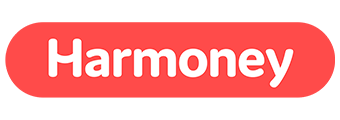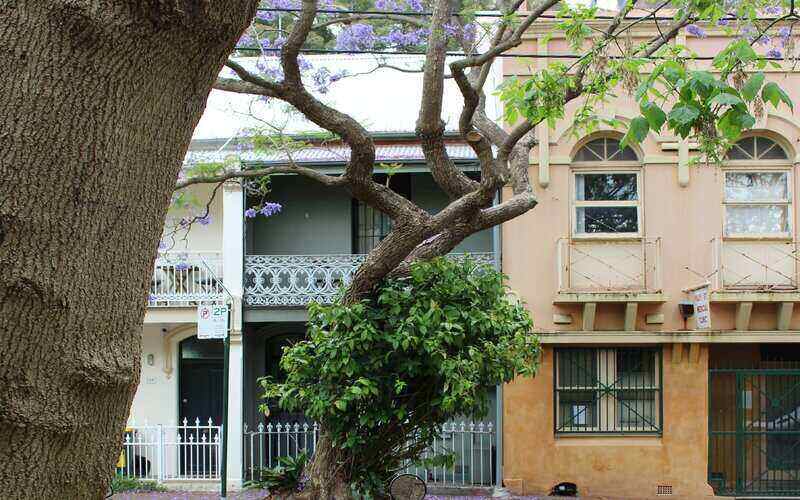The superannuation system seems to work well overall. As of June 2024, Australian people held nearly $4 trillion worth of superannuation reserves, which works out to be about $184,000 per person. Some sources claim Australia has more retirement savings per capita than anywhere else on earth.
However, part of the reason for this is how hard it is to get hold of your super before you hit retirement age. Under most circumstances you won't be able to access your super early, but there are exceptions. Read on to find out whether you might meet the criteria to qualify:
When can I access my super early?
According to the Australian Tax Office (ATO) you can only access your superannuation before 'preservation age' (a weird term that means the minimum age set by law your super must be 'preserved' until) if you meet one of these eligibility requirements:
-
You meet 'compassionate grounds'
-
You are in severe financial hardship
-
You have a terminal illness
-
You have less than $200 in your super fund
-
You're a temporary resident permanently leaving Australia
-
You're temporarily or permanently incapacitated
Keep in mind that even though these conditions of release are stipulated in superannuation law, not all super funds allow their trustees to receive a payment so it's best to check.
It's also important to note that early access of super can only be granted for unpaid expenses. So if you've already borrowed money from a family member or a friend, or paid for the expense with a loan or credit card, you won't be eligible to access your super.
Do you pay tax on early withdrawals?
Your super can consist of both taxable and tax free components. For example, any personal contribution you make from your after tax income has already been taxed, so you won't need to pay again. However, the contributions your employer is obligated to deposit for you is taxable (albeit at a concessional rate of 15% for up to $30,000 per year), so if you're withdrawing a portion of your taxable component, you may have to pay up.
Compassionate grounds
One debt-related reason you may be able to access your super early is if the ATO approves you for access on 'compassionate grounds'.
These can include:
-
Paying for medical treatment for you or a dependant
-
Palliative care for you or a dependant
-
Making a payment on a loan to prevent you from losing your home
-
Modifying your home or vehicle for the special needs of you or a dependant because of a severe disability
-
Paying for expenses associated with a death, funeral or burial of a dependant
There's no set minimum or maximum limit of your super you can access, but the ATO states the amount of super you can withdraw is limited to "what you reasonably need" and is paid as a lump sum.
Severe financial hardship
According to the ATO, you may be permitted to access a maximum of $10,000 of your superannuation on the grounds of severe financial hardship. To be eligible for financial hardship you must have received government income support payments continuously for 26 weeks and be unable to meet "reasonable and immediate family living expenses".
You can only make one withdrawal from your super fund because of severe financial hardship in any 12-month period.
These expenses include:
-
Housing or accommodation costs
-
Food expenses
-
Essential travel costs
-
Any other essential living costs
If you do qualify as being under severe financial hardship, you'll be allowed to withdraw between $1,000 and $10,000.
Terminal illness
If you're terminally ill, you may be able to access your super. According to the ATO, a terminal medical condition exists if:
-
Two registered medical practitioners have certified, together or separately, that you suffer from an illness, or have an injury likely to result in death within 24 months of the certification.
-
At least one of those registered medical practitioners is a specialist practicing in an area related to your illness or injury
Your superannuation fund must pay your super as a lump sum and this payment is tax-free if you withdraw it within 24 months of certification.
Some super funds may not allow you to access your super under this condition. If this is the case, the ATO advises you switch to a super fund that does.
Less than $200 in your fund
If you've worked multiple casual jobs with multiple employers, it's likely you also have multiple superannuation accounts floating around with very little $ in them. The good news is you're entitled to withdraw the balance from each one.
If your employment is terminated (whether you lose your job or quit) and the balance of your super account is under $200, you may be able to access your super. You may also be able to access formerly lost super held by a super fund that is less than $200. No tax is payable on amounts under $200.
You may also want to consider consolidating these amounts into a single super fund to grow your nest egg. You can roll over your super with your eyes shut on the My Gov website.
Temporary resident leaving Australia
If you're a temporary resident leaving the country for good, you may be able to claim the super you earned back as a departing gift, otherwise known as a departing Australia superannuation payment (DASP).
As always, there are requirements you need to meet to claim your DASP:
-
You accumulated your super while working in Australia on a temporary resident visa
-
Your visa has now expired or been cancelled
-
You have left Australia
-
You are not an Australian or New Zealand citizen, or a permanent resident of Australia
Temporarily or permanently incapacitated
If you are temporarily or permanently incapacitated (unable to work) you may be able to access your super in the form of insurance benefits or a "disability super benefit".
If you're permanently incapacitated, your super fund must be satisfied that you have a permanent physical or mental medical condition that's likely to stop you from working ever again in a job you were qualified to do by education, training or experience.
Your super will be paid to you either as a lump sum or as regular payments. While a super withdrawal due to temporary incapacity is taxed as a normal income stream, a super withdrawal due to permanent incapacity is subject to different tax rules.
What happens if you access your super illegally?
If you access your super illegally, it can cost you a lot more than the amount you withdrew.
Members of self managed super funds (SMSFs) who illegally access their super early are required to pay interest on what they withdraw and significant penalties can apply.
Trustees of SMSFs incur even higher taxes and additional penalties, and can be disqualified. If a trustee knowingly allows illegal access to super, they may face penalties of up to $420,000 and a jail term of up to five years, or fines of up to $1.1 million if you're a corporate trustee.
Probably not worth it.
Loopholes to access super early
Here's what to know about your chances if you're trying to withdraw super when none of the above exceptions apply to you:
Accessing super to buy property
The First Home Super Saver Scheme (FHSSS) allows first home buyers to withdraw voluntary super contributions to go towards buying a property. Since concessional (before tax) contributions are taxed at 15%, lower than most people's marginal tax rate, salary sacrificing can help first home buyers with saving for a deposit. There are limits to how much you can withdraw - up to $15,000 in any one year and $50,000 all up.
This doesn't apply to the compulsory contributions your employer makes to your superannuation, so you'll only be able to take advantage if you're voluntarily putting in extra.
Accessing super to pay off your mortgage
Struggling to make your mortgage repayments falls under 'compassionate grounds'. The ATO states that if you're at risk of losing your home because you can't make repayments, you can access your super. This only applies to mortgage arrears - not rental arrears.
With that said, you can only access your super early to make mortgage repayments if:
-
The home is your primary place of residence
-
You are legally responsible for making mortgage or rates payments
-
You have no other way of paying the mortgage (like accessing savings or selling assets)
The ATO also states that you won't be eligible to access your super early to make mortgage repayments if:
-
You are not currently in arrears on your mortgage or council rate payments, even if you think you might find it hard to pay them in future
-
You are in arrears on your mortgage or council rates but the mortgage lender or council is not threatening to repossess or sell your home
How much of your super you can access will depend on how much is necessary to make the loan repayments. According to the ATO, the maximum amount you can access in any one 12-month period is:
-
Three months of repayments
-
12 months of interest on the balance of the loan
The ATO also states they will usually only approve the release of the amount that's actually required by the lender, which may be less than the maximum amount above.
If you haven't got enough in super to cover your outstanding mortgage repayments, it's not necessarily the end of the world. To access your super in this situation, you have two choices:
-
You can reduce the amount you owe the lender
-
You can negotiate with the lender to reach an agreement in which they will accept your available super benefit in exchange for not selling your home. The lender has to provide a letter confirming this agreement to the ATO.
Can you borrow money from your super?
The short answer to this is no.
In the 2025 election campaign, the Coalition put forward a proposal that would allow first home buyers to access their super to buy a home. The proposed Super Home Buyer Scheme would have allowed first homebuyers to withdraw up to 40% of their super balance, capped at $50,000, to buy a home. This would include the entire balance, not just voluntary contributions like the FHSS. The amount withdrawn would need to be returned to the fund after the property is sold, along with any capital gains, so it would have been like borrowing money from your super to buy property. However, after the resounding victory of the Albanese Government, this policy will likely be on ice for a while, so for now, you won't be able to borrow from yourself.
In the market for a personal loan? The table below features unsecured personal loans with some of the lowest interest rates on the market.
First published on October 2019






 Emma Duffy
Emma Duffy














